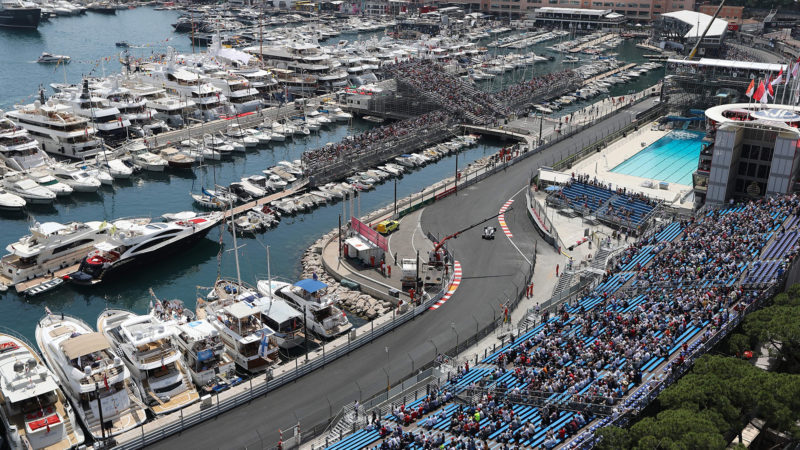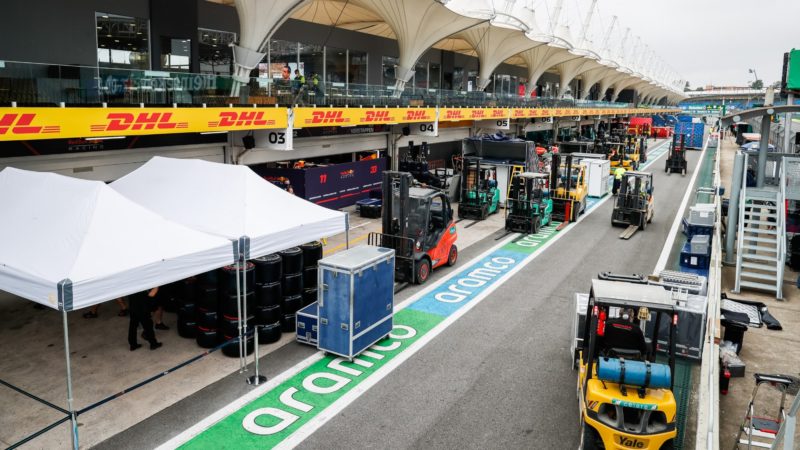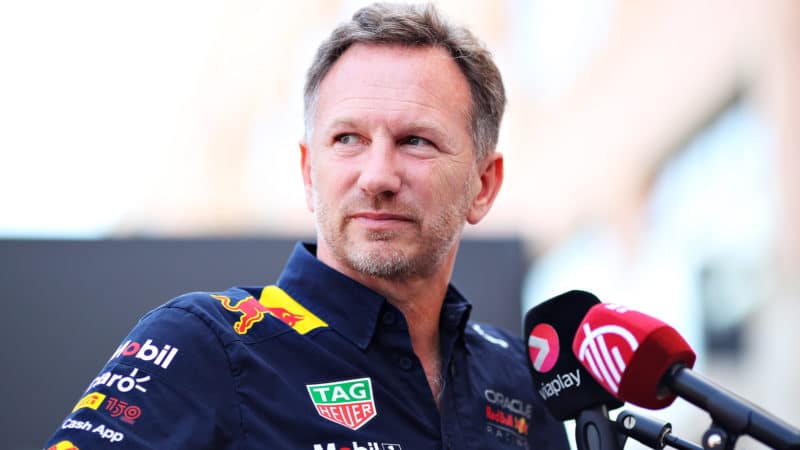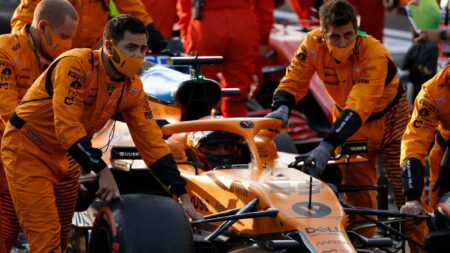“That was never the design of the budget cap. The budget cap was there to limit the top teams from from a spending frenzy. The budget cap figures, if you remember, were reduced by $30 million from where they originally set during the pandemic. Nobody could have even contemplated world events that are driving inflation.
“We don’t even know what that inflation is going to be in the second half of the year. We’re all seeing the cost of living rising, we’re seeing utility bills going through the roof, where is that going to go the next six months?
“So we do need the FIA to take early action on this. Because we’re coming up to the mid-year point. And there’s only so much you can do.”
Horner was keen to point out that his company has already done a lot to adjust to the cap.
“I think we have a responsibility to our employees as well,” he said. “We reorganised, we’ve reshaped, we had to say goodbye to many longtime employees through redundancies last year, to get down to a point that was consummate with the cap before inflation came along.
“And I don’t think it’s right that he pressure should be put on mass redundancies, you know within the sport.
“Hopefully common sense will prevail. It is a force majeure situation: none of us could have seen [the events] that have driven these costs up? And pragmatically, we just need to come to a common sense solution.”
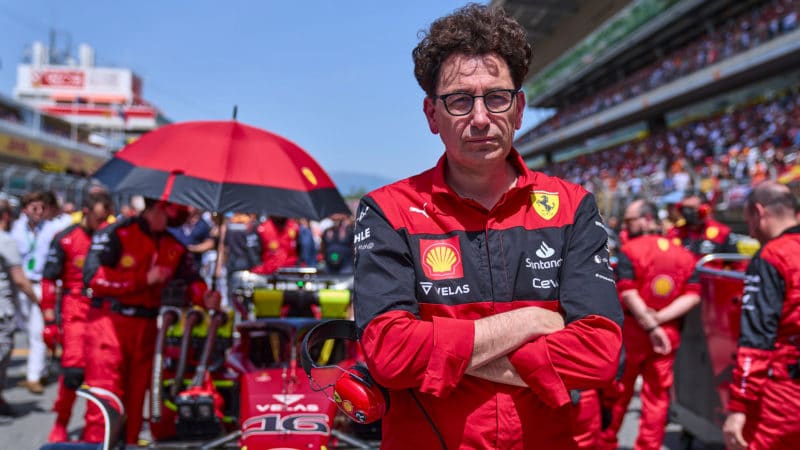
Big teams will hit the budget cap “vey soon” says Ferrari boss Binotto
Ferrari
Horner is not alone, and his views are mirrored by Ferrari boss Mattia Binotto.
“There is an unforeseen force majeure situation of inflation, which is so high, and no one was predicting it,” he said.
“This 6% of inflation is really a lot of pressure on our shoulders. So we could have prepared ourselves for a reduction in budget cap from $145m to $140m, we could have prepared ourselves for a brand new car, no carry over parts, which was not the case last year.
“It isn’t in the interest of the sport to have teams having penalties because of financial issues”
“But we could not have prepared ourselves for such a high inflation. So I’m pretty sure that all of us, and not only the top three teams, the big teams, will hit the budget cap very soon in the season.”
Binotto makes the obvious point that no one wants to see the World Championship impacted by a legal argument over money.
“I think it will be really a shame that a sport like F1 will be dictated by the budget cap. It has to remain a sporting and technical challenge. The budget cap and the financial regulations are certainly a very green regulations. It’s only the second year, and it will take many years to fine tune it.
“And I think because of that low maturity of the financial regulations wherever it is, where there will be no fairness or equity in the way we are interpreting it, I think it will be completely wrong that a budget cap is dictating the challenge on track.
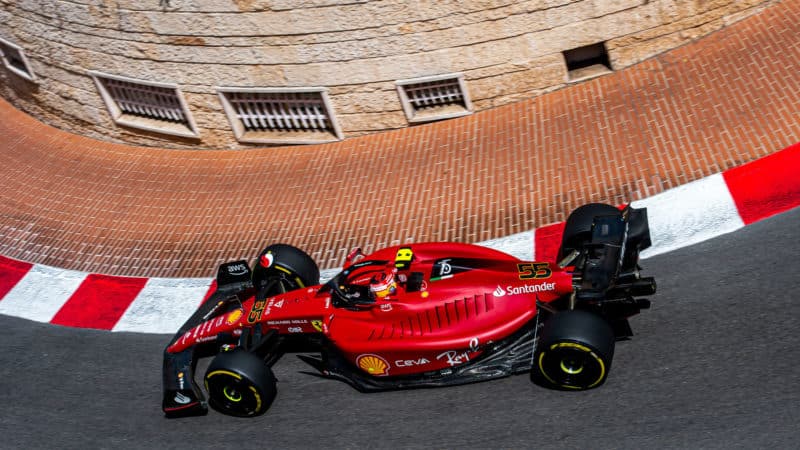
Developing a brand new car under the cost cap was manageable, but current inflation is not, says Binotto
Ferrari
“So I think the only thing we can do as F1 is increase the budget for inflation, which is something as I said, which we could never foresee.
“And I think that would be the right thing to avoid many discussions at the end of the year [that] maybe the team winning the championship was simply the one spending the most.”
Getting agreement of all the teams for a tweak to the budget cap has been a struggle. However, it’s not just the big three who back it.
“It isn’t in the interest of the sport to have teams having penalties because of financial issues,” says Aston Martin boss Mike Krack.
“And the reason why we support it is mainly because the increasing cost is real, inflation is not something that has been invented. So as long as the approach for inflation management in the regulation is reasonable, which it is, by the proposals, we will support it.”
Melbourne crashes for Lance Stroll and Sebastian Vettel sent Aston Martin’s accountants back to their calculators
That said, Krack believes it’s up to the teams to manage their spending efficiently, and if that means cutting back on development, so be it.
“Can the other teams have more points?” he says. “That’s my answer to this. I mean, the rules are the technical rules, the rules are sporting rules, the rules are financial rules, and you try to comply to all three of them.
“And I think now it is still time to make the right choices. If you overspend now obviously then it will be tight later. We have very good cost monitoring. I think we are also quite efficient in terms of how we spend.
“When freight costs go up by $3.5m, and your development budget is $20m, can you not make your development budget $17m?”
“We are not in a position where we would not make races. But we are also watching now what are we going to do for Monza, for these special races. You have you have to make these decisions.
“Before we decide a new, say, for example, a Monza package, or Monza wing, we know what this is costing us, and we know how much money we will have, if we make it. We have obviously some margin in for crashes, and stuff like that. I mean, if we repeat the Melbourne thing every weekend, then we will not do the Monza package!
“I think the cost cap should not just be increased, because some people are just not having having their costs under control. But as I said, if the cost, the situation in Russia or Ukraine drove the energy prices extremely high. Air freight rate is very high.
“And this you could not plan in any budget. So that’s also why we support an increase based on inflation, but not an increase per se.”
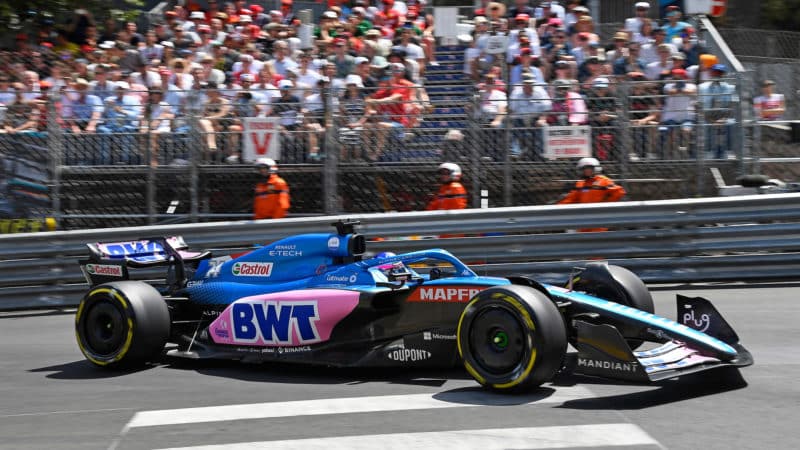
Alpine planned for higher prices and is one of the teams against a cost cap increase
Grand Prix Photo
While Aston Martin supports a change to the cap limit, Alpine most definitely does not, as team principal Otmar Szafnauer has made clear.
“We’re not in favour of that,” says the American. “We’ve set our budgets out early, we kind of anticipated a little bit of the inflation, inflation just didn’t creep up on us. If you look back in December, the RPI was already at 7%. And most teams do their budgets between November and December for the following year.
“For us, it wasn’t a surprise. So therefore, we planned for it, we’re still under the cap, even though we didn’t plan for as high a freight cost as we are now experiencing. But we’re still under, and if we can do it, for sure others can do it too. So I’m not for just increasing the cap.”
Szafnauer challenges the idea that inflation arrived announced.
“There’s a significant amount of money in the development budget for a year,” he says. “Especially in a year where the regulations are all new, you put in a lot of money for development, because ultimately this year is a development race.
“So when freight costs go up by $2.5-3.5m, but your development budget is $20m, can you not make your development budget $17m and still be under the cap? You can. But what that then does is it limits your development, and you’re in a development race.
“So it’s a lot easier if you have the money to go to the FIA and lobby to raise the cap and keep your development budget the same. So those are the questions you should be asking.”
As long as some teams oppose any boost to the cap, this saga is set to run and run. It remains to be seen what happens later in the year as teams inevitably tip over it.
